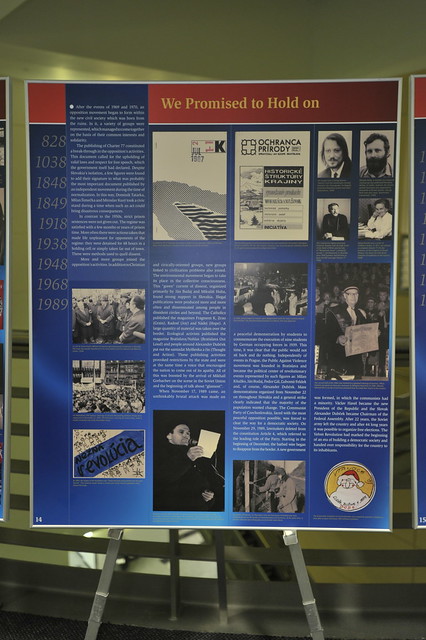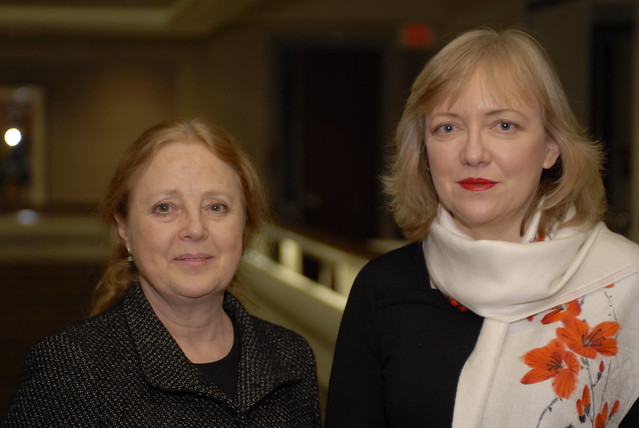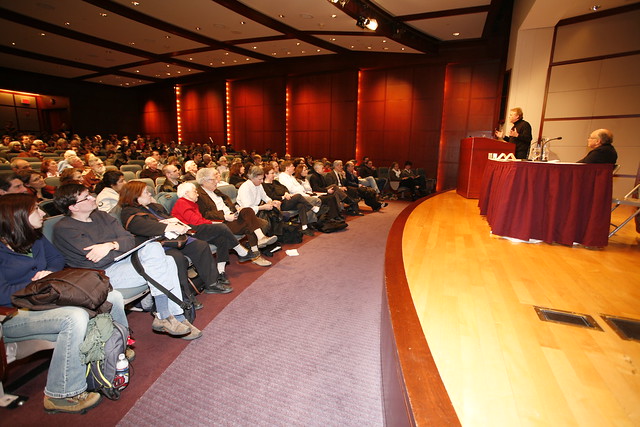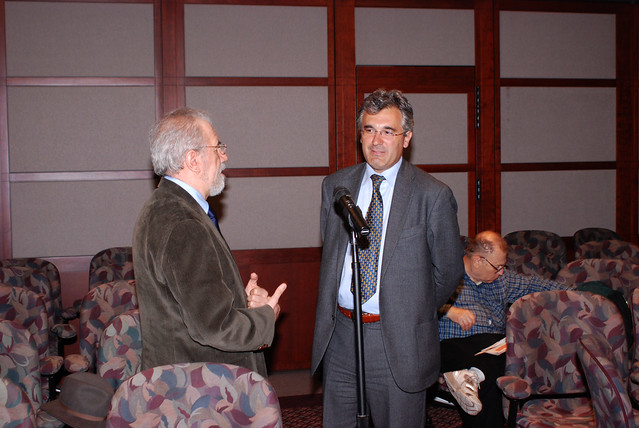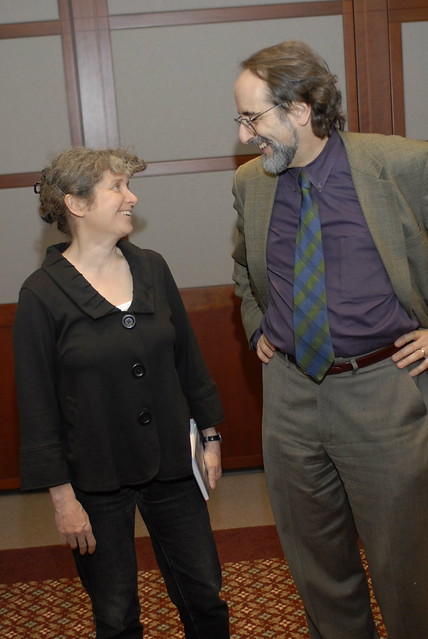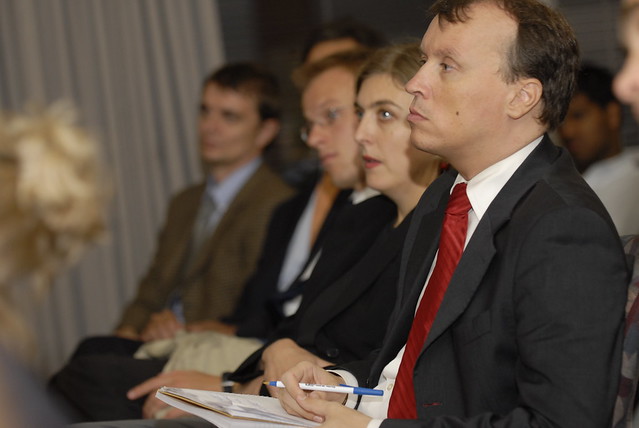2008
January | February | March | April| May | June | July | August | September | October | November | December
February
February 19 | Tyranny of Choice: How We Become Who We Are
Renata Salecl
Slovenian philosopher and sociologist
Salecl discusses her book in progress, an analysis into why late capitalist insistence on choice increases feeligns of anxiety and guilt. “In the Western world,” Salecl writes, “people are not only under the impression that there are endless possibilities to find fulfillment in life, but they are also encouraged to be some kind of self-creators, i.e., they are supposedly free to choose what they want to be. In this highly industrialized society, which allegedly gives priority to the individual’s freedoms over submission to group causes, people, however, face an important anxiety-provoking dilemma: “Who Am I for Myself?”
Listen to this lecture on WBUR
March
March 18 | Max Kade Lecture at Boston University: The Legacy of 1968: A European Perspective
Daniel Cohn-Bendit
German Politician and Member, European Parliament; Co-president of the European Greens/European Free Alliance Group.
Introduction: Stanley Hoffmann
Paul and Catherine Buttenwieser University Professor at Harvard University
Listen to this lecture on the EU for You podcast.
View video on BUniverse
April
April 24 | Our Innocence, Foreign Perversions: Gender and Sexuality in Nationalist Discourse
Agnieszka Graff
Polish writer, translator, feminist and human rights activist. Since 2000, Graff has been an assistant professor at the Center for American Studies at the University of Warsaw. She published her best-selling first book, ?wiat bez kobiet (A World without Women) in 2001.
April 28 | Ethics of Atheism
Paolo Flores D’Arcais
Italian philosopher and editor-in-chief of MicroMega
Alan Wolfe
Director of the Boisi Center for Religion and American Public Life at Boston College
May
May 1 | Fiction and Possibility
Magdalena Tulli
Polish author and translator
Lawrence Weschler
Writer and Director of the New York Institute for the Humanities at New York University
In cooperation with the literary journal AGNI
September
September 26 | 4th Jacek Kuron Debate
Alfred Gusenbauer
Prime Minister of the Republic of Austria
Richard Sennett
Professor of Sociology at New York University and at the London School of Economics.
The Craft of Solidarity: Skills and Practice
Chair: Ira I. Katznelson
Ruggles Professor of Poltical Sciences and History, Columbia University
This debate took place as part of the 4th Conference on Solidarity: Solidarity and Isolation. It was focused on the following questions: If social isolation is the converse of solidarity, what can we learn about the latter by exploring the former? How does the magnitude, and how do various patterns of social isolation affect a civic order that is premised on threshold levels of generalized solidarity based on trust, pluralism and toleration.
Listen to this lecture on the EU for You podcast.
Watch video on BUniverse
October
October 20 | Georgia on My Mind: Can the European Union Cope
Jolyon Howorth
Jean Monnet Professor of European Politics at the University of Bath (UK) and Visiting Professor of Political Science and International Affairs at Yale University.
Jacques Rupnik
Directeur de recherche at the Centre d’Etudes et de Recherches Internationales (CERI), Paris, and Visiting Professor at the Collège d’Europe, Brügge.
Moderator: Vivien Schmidt
Jean Monnet Professor of European Integration and Director of the Center for International Relations, Boston University
Listen to this lecture on WBUR
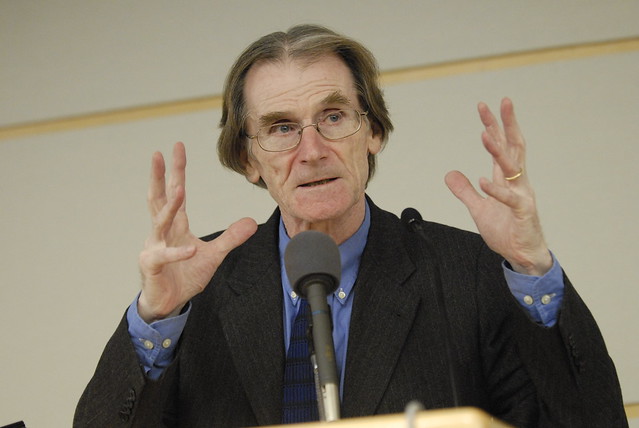
November
November 2 | The US Election: What Is at Stake for Europe and the World?
Aleksander Kwasniewski
President of Poland (1995 – 2005)
Respondent: Stephen Walt
Robert and Renee Belfer Professor of International Affairs, Kennedy School of Government, Harvard University
In cooperation with the Polish American Networking Organization and the White Eagle Newspaper
Listen to this lecture on WBUR
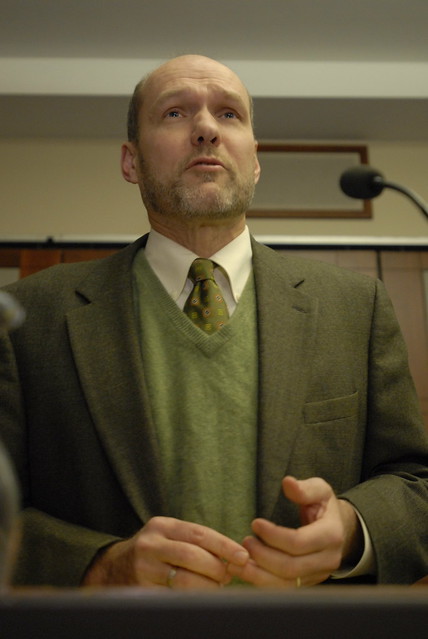
November 18 | Whatever the Problem, Community Is the Answer
Margaret Wheatley
Organizational consultant and co-founder of The Berkana Institute, a charitable global foundation that works in partnership with a rich diversity of people around the world (www.berkana.org).
In cooperation with the Department of Organizational Behavior at Boston University’s School of Management
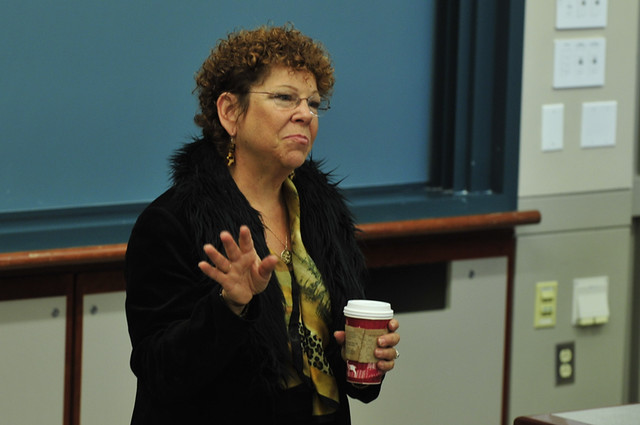
December
December 1 | Europe Confronts Its Past
Introduction: Peter Muzila
Honorary Consul of the Republic of Slovakia in Boston
Panel Discussion:
Igor Lukes
University Professor and Professor of International Relations and History, Boston University; Honorary Consul of the Czech Republic in Boston
Martin Simecka
Editor-in-chief of Respekt, a weekly newsmagazine in the Czech Republic, reporting on domestic and foreign political and economic issues, as well as on science and culture
Listen to this discussion on WBUR
Exhibit: The Magic Number 8 in the History of Slovakia
This event took place in conjunction with a panel exhibit prepared by the Ministry of Culture and Slovak National Museum.
Slovak history is interesting in that many pivotal events took place during years that end in the number eight. These crucial years include 1848, 1918, 1938, 1948 and 1968. The year 1989 also belongs in this category because the November Velvet Revolution of 1989 actually began in 1988. There are important internal connections between the “8” years and their events. The Slovaks’ national emancipation process began with the uprising in the revolutionary year 1848 and culminated in 1918 with the founding of Czechoslovakia. This common state of Czechs and Slovaks was then exposed in 1938 to a challenging historical test. The historical ties between 1948, 1968 and 1989 are also strong. They mark the founding, crisis and fall of the communist system in the former Czechoslovakia. The anniversaries are a natural reflection of both Slovak history in a broader context and of that history’s connections to the present. This is also the goal of the exhibition, The Magic Number Eight in the History of Slovakia, whose organizers seek to improve mutual knowledge and understanding among nations.
